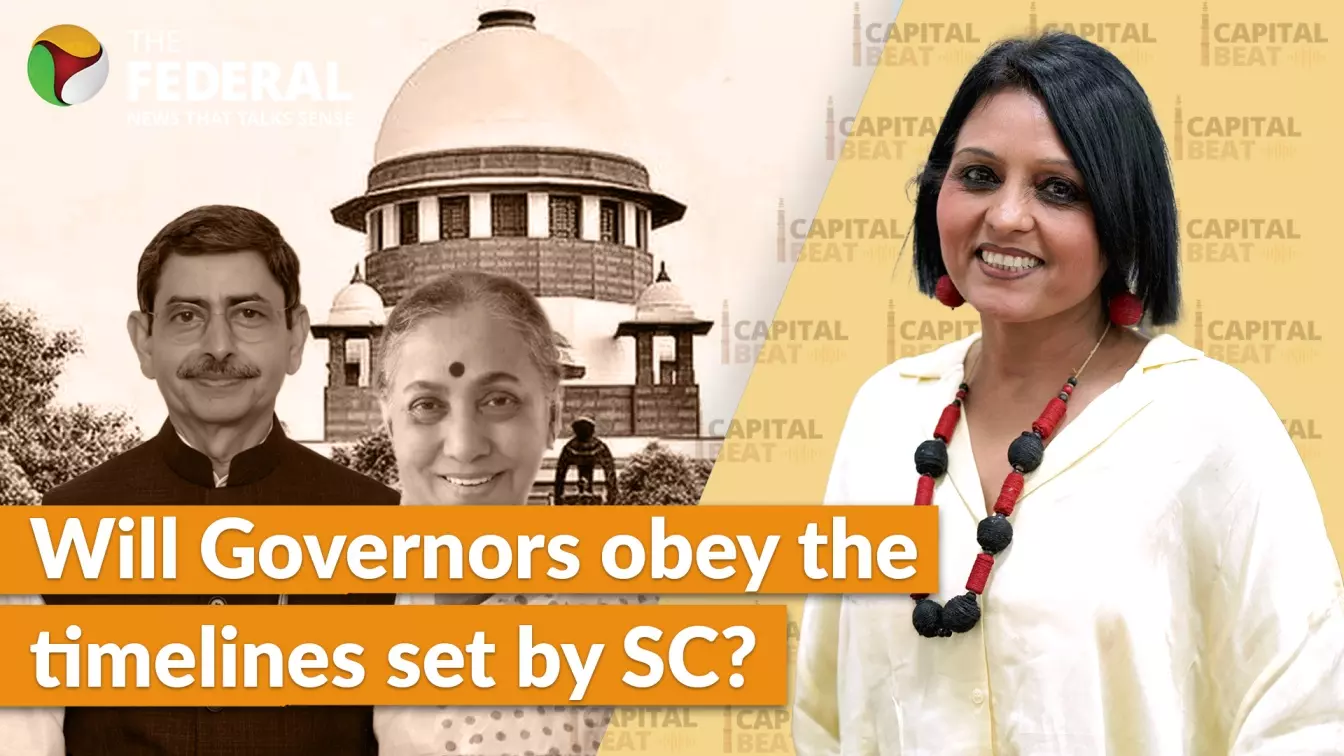
Margaret Alva interview: 'Tamil Nadu Governor should quit'
Margaret Alva did not rule out the possibility of the Centre trying to amend Article 200 or other constitutional mechanisms to empower Governors further

In a landmark judgment, the Supreme Court has ruled that Governors must act within stipulated timeframes on Bills forwarded to them by state legislatures. Former Union minister and Governor Margaret Alva joined Capital Beat to reflect on the court’s ruling, especially in light of Tamil Nadu Governor RN Ravi’s controversial conduct. In a candid and detailed conversation, Alva welcomed the judgment and called it “timely” and “long overdue”.
Clear timelines, strong words
A Bench comprising Justices JB Pardiwala and R Mahadevan ruled that Governors must not act as roadblocks and must abide by constitutional values, giving Governors one month to either approve or return Bills and three months to refer Bills to the president if needed. The court also invoked Article 142, declaring 10 Bills stalled by Governor Ravi as “deemed passed.”
Also read: Here are the 10 TN Bills now deemed approved after SC’s rap for Governor Ravi
Alva called this a landmark precedent. “This has become scandalous,” she said. “It’s not me or you — everybody is talking about what these Governors are up to.” She added that a Governor who continues to obstruct Bills should resign “with self-respect,” especially after being declared “erroneous and illegal” by the court.
Ravi under pressure
The judgment was in direct reference to Governor Ravi, who had withheld multiple Bills passed by the Tamil Nadu Assembly. “For all practical purposes, Governor Ravi has become persona non grata in Tamil Nadu,” Alva said, calling for his resignation. “The most dignified path for him is to step down voluntarily before he’s asked to go.”
Also read: Kerala Ministers, leaders hail SC verdict against TN Governor
Asked whether the president could now ask for such resignations, Alva replied affirmatively. “The president is duty-bound to act in light of this judgment,” she said, citing past examples where Governors like Buta Singh were asked to resign following adverse court verdicts.
Impact beyond Tamil Nadu
Alva noted that this verdict is not just about Tamil Nadu. Similar cases are pending from Kerala and Telangana. “This judgment must apply to all pending matters. These are similar issues and no bench can now go against this ruling.”
The larger implication, she said, is for Centre-state relations and India’s federal framework. “This is a great victory for state governments,” she noted, adding that states ruled by Opposition parties have long suffered from politically motivated Governors.
Political implications
Asked whether this could become a political issue in upcoming state elections, Alva said, “Certainly. This strengthens the narrative of constitutional abuse under the current government.” She said it also has the potential to unite Opposition parties, especially those who have been victims of aggressive gubernatorial overreach.
“This judgment is going to be quoted everywhere as proof that the Raj Bhavans were misused,” she added.
Will Modi govt respond?
Alva said the ball is now in the Centre’s court. “If the Modi government accepts this as a lesson in constitutional functioning, they will come out with clean hands. If not, public opinion will turn sharply against them.”
She also did not rule out the possibility of the Centre trying to amend Article 200 or other constitutional mechanisms to empower Governors further. “With this Home Minister, anything is possible,” she quipped, warning of potential backlash from legal communities and voters alike.
Need for tighter rules?
While the court has now set timelines, Alva reiterated her earlier demand for specific written guidelines for the functioning of Governors. “If Governors continue to misbehave, the Supreme Court may have to come out with even stronger measures,” she warned.
As the judgment resonates across India’s political landscape, it is clear that this isn’t just a legal development — it’s a flashpoint in the ongoing battle over federalism, governance, and constitutional propriety.
(The content above has been generated using a fine-tuned AI model. To ensure accuracy, quality, and editorial integrity, we employ a Human-In-The-Loop (HITL) process. While AI assists in creating the initial draft, our experienced editorial team carefully reviews, edits, and refines the content before publication. At The Federal, we combine the efficiency of AI with the expertise of human editors to deliver reliable and insightful journalism.)

